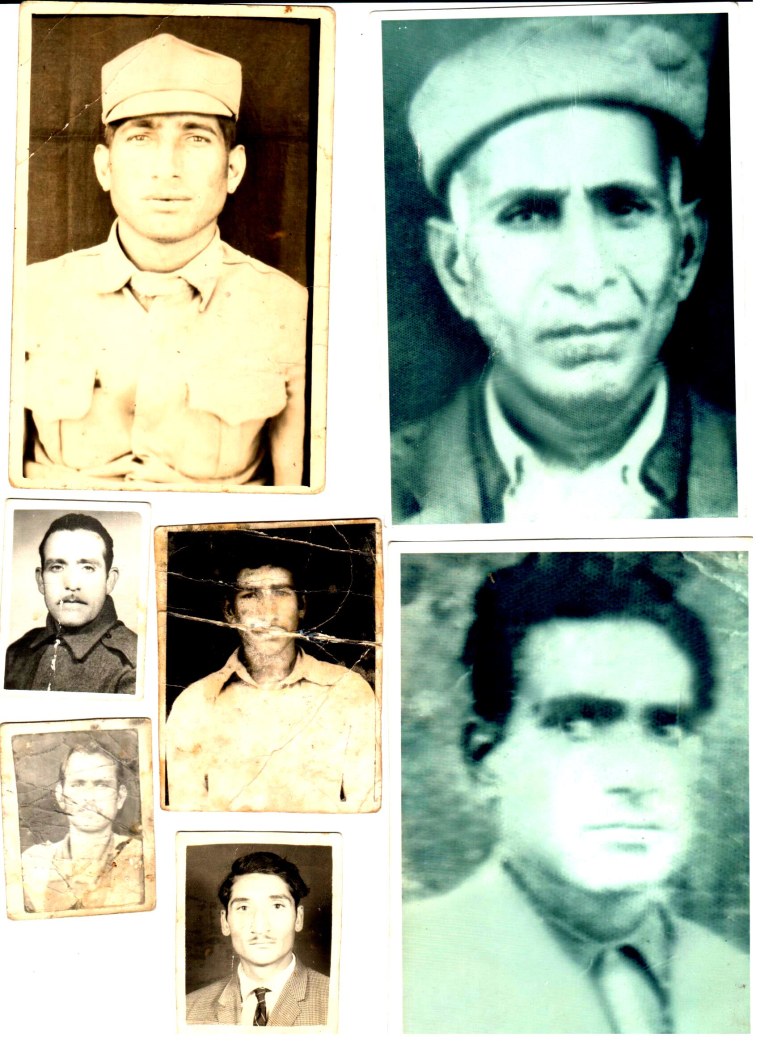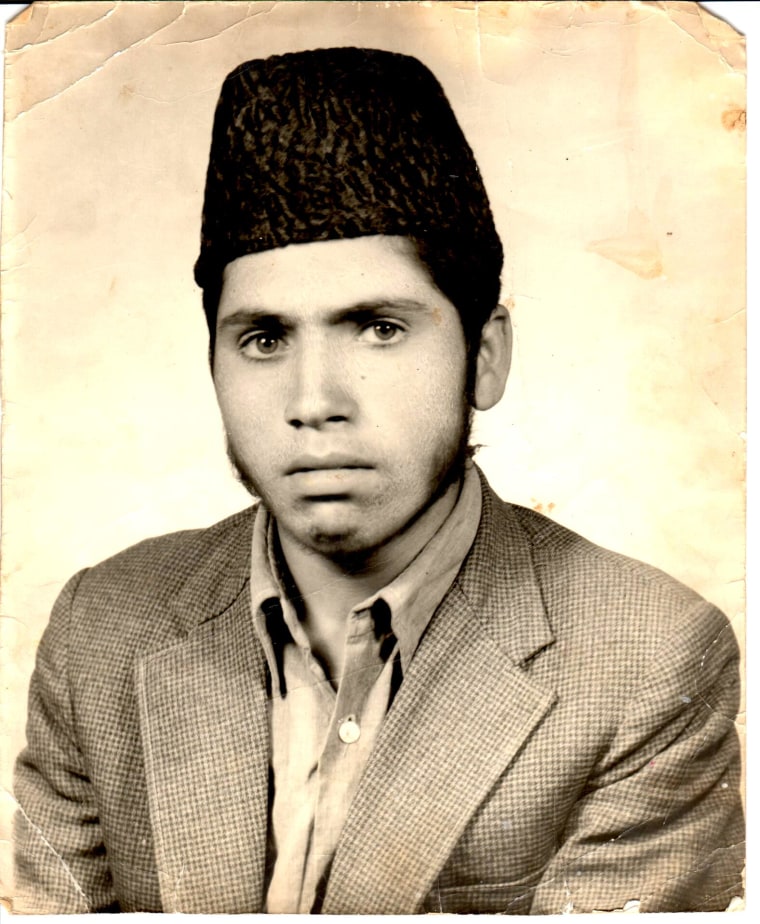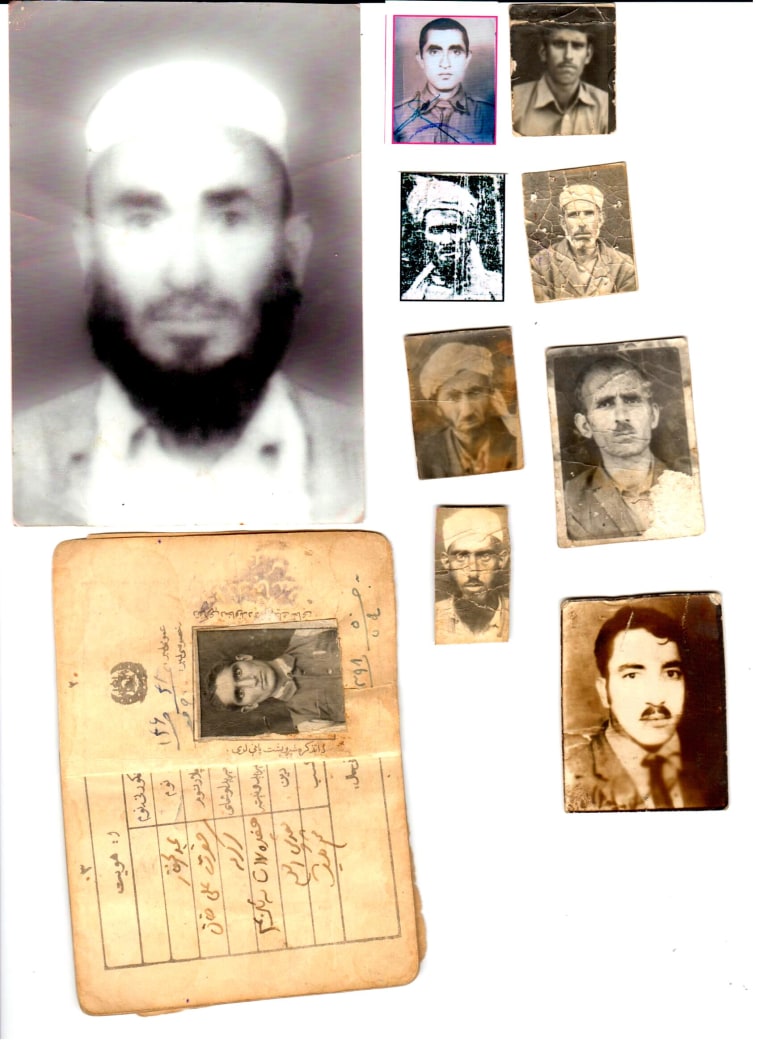KABUL, Afghanistan — Abdullah Khan was just a teenager when Afghan commandos came to his village and started dragging men and boys into the street.
He watched in horror from the rooftop as the soldiers proceeded to massacre more than 1,000 people in cold blood, including his father, who was getting ready to go to Friday prayers, and seven other family members.
"We saw soldiers shooting people. No one was spared," Khan, now 52, told NBC News. "I cannot even explain what was happening. I was shocked and could not move. People were screaming and running away and soldiers were chasing them and shooting them."

After killing the unarmed men, the soldiers used bulldozers to bury the bodies in mass graves. Some of the victims were only wounded, but despite their shouts of protest the troops shoveled them into the ground alongside the corpses of their friends and relatives, according to Khan and an Associated Press report at the time.
A 16-year-old witness told the AP the survivors shouted: "We are alive, don't bury us!"
The massacre in Kerala in eastern Afghanistan's Kunar province claimed more than 1,000 lives, according to Human Rights Watch. Residents and a local lawmaker say 1,260 people were killed.
More than 36 years after the killings on April 20, 1979, a man named Sadeq Alamyar was last month arrested in the Netherlands on suspicion of perpetrating the massacre.
Durtch prosecutors accused of ordering the massacre and firing some shots himself, actions amounting to suspected war crimes. Residents and a local lawmaker told NBC News of their relief of the prospect of some degree of legal closure.
"We are happy that at last this [alleged] criminal killer is facing justice," Khan said. "Almost all of the adult men in the village today are orphans of that day."

According to Dutch prosecutors, Alamyar was in charge of commando unit 444, fighting for the pro-Soviet Afghan government against Mujahideen rebels. It was a conflict that would morph into the Soviet-Afghan war that lasted the next nine years.
"When I heard the news on the radio ... the whole memory came back," Khan said, speaking of Alamyar's arrest.
Shah Mahmood, a 64-year-old who lost 13 family members that day, added: "We are very happy and thankful to the government of the Netherlands, which finally heard our cries for justice. We hope now he is arrested, he is tried and brought to justice."
Now a retired colonel, Mahmood was in his 20s and on duty in the Afghan Army in Laghman province at the time.
"When I heard of the news I could no longer work for the regime that massacred my family and my people," he said, adding that he immediately abandoned his post and fled to Pakistan.

"Although we have rebuilt our lives again and the village has grown much bigger, the memory is still there and we commemorate the anniversary every year," he added.
Haji Sakhi, a lawmaker representing Kunar province, also remembers the tragedy vividly. In the wake of the arrest, he and his colleagues wrote to Dutch authorities offering their full cooperation in the investigation.
"We hope others involved in this crime are also brought to justice," he told NBC News. "This was a major war crime and hopefully [Alamyar's arrest] will be a first step towards ending the impunity for the criminals who have been living in the luxury of the West for the past two-to-three decades."
